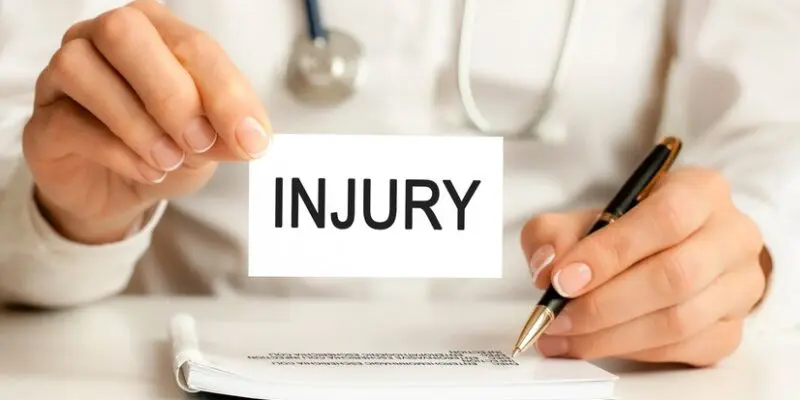
Sustaining an injury, no matter how minor or severe, can be a traumatic experience, and navigating the legal system when seeking compensation or justice can be overwhelming. If you find yourself in a situation where you need to file an injury trial, there are several essential considerations you should keep in mind to ensure that your claim is successful.
In this blog post, we will cover seven essential considerations you should consider when navigating injury trials. From knowing your rights as a plaintiff to finding suitable legal representation and understanding the complexities of the trial process – this guide will help you navigate the legal system confidently and give yourself the best chance of success.
Understanding The Legal Process
Understanding the legal process is an essential part of navigating injury trials. It involves familiarizing oneself with the laws and regulations governing personal injury claims, as well as the procedures and rules of the court. This knowledge can allow the injured party to make informed decisions about their case and avoid common pitfalls that may undermine their chances of success.
It also involves understanding the steps in filing a lawsuit, including the initial complaint, discovery, and pre-trial motions. By developing this understanding, the injured party can feel more confident in their ability to pursue their case and achieve a favorable outcome.
Preparing A Strong Argument
Preparing a solid argument is an essential part of navigating injury trials. To do this, gathering all relevant evidence and assessing potential witnesses is vital. It is also vital to create a timeline of events that led up to the injury and to utilize expert testimony.
In addition, understanding the legal process and anticipating the outcome can help prepare a strong argument. Taking a systematic approach and considering the case’s legal and emotional factors will ensure a thorough and effective trial strategy. By being thorough and meticulous in their preparations, injury victims can increase their chances of a successful outcome in court.
Acquiring Relevant Evidence
Acquiring relevant evidence is crucial to building a solid case in a personal injury claim. This includes medical records, photographs of the accident scene, and witness statements. It is also essential to obtain records from all pertinent medical care providers.
Supervisors can play a crucial role in determining what happened, and it’s essential to establish whether the accident was job-related. Buyers and sellers of mineral rights should also understand the transaction and any relevant information about the accident. By gathering all relevant evidence, an injured party can make a strong argument and increase their chances of a successful outcome in their injury trial.
Assessing Potential Witnesses
Assessing potential witnesses is a crucial step in any injury trial. Investigators must identify witnesses who can provide relevant information to support their case. This may include eyewitnesses, medical experts, or other individuals with specialized knowledge.
Investigators need to understand the rules that apply to assessing witnesses’ competence and compellability. Evaluating witness statements is also critical to determine essential information about the accident.
By analyzing the proofs and identifying these potential witnesses, investigators can prepare a strong argument and acquire relevant evidence. Through this process, they can navigate the legal process more efficiently and increase the likelihood of a successful outcome.
Making A Timeline
When navigating injury trials, creating a timeline is an essential consideration. A timeline helps to organize the events leading up to the injury, the injury itself, and the aftermath. It also provides a clear and concise picture for the judge and jury to understand the sequence of events.
To create a timeline, gather all relevant documents, such as medical records, police reports, and witness statements, and use them to create a chronology of events. It’s essential to be precise when creating a timeline to ensure clarity during the trial. By creating a comprehensive timeline, an injured person will increase their chances of a successful outcome in their personal injury lawsuit.
Utilizing Expert Testimony
Having the right medical expert witness can make a tremendous difference in any personal injury trial. These experts possess essential knowledge and skills to help build a strong case for the injured party. Attorneys must carefully select possible witnesses and evaluate their testimony to make sure they are reliable and powerful enough to persuade a judge or jury.
Judges, too, must act as gatekeepers by excluding any unreliable evidence. When used correctly, an expert witness can be critical to any successful argument and provide vital evidence to support a client’s claims. By wisely incorporating expert testimony into their strategy, attorneys can be invaluable in pursuing justice for the injured party.
Anticipating The Outcome
Anticipating the outcome of an injury trial is an important aspect that both the plaintiff and the defendant must consider. Based on the evidence presented and the arguments’ strength, it is difficult to predict the exact outcome of a trial. However, evaluating the potential outcomes and preparing for them is crucial.
Sometimes, a settlement may be reached before the trial even begins. In other instances, a jury may award a favorable verdict, while the outcome may not be as positive in some cases. It is crucial to be prepared for any scenario and have a plan for moving forward after the trial. Ultimately, the goal is to achieve the best possible outcome for all parties involved.
Conclusion
In conclusion, navigating injury trials can be a complex and daunting process. However, with the seven essential considerations outlined in this blog, individuals can better understand the legal process, prepare a strong argument, acquire relevant evidence, assess potential witnesses, make a timeline, utilize expert testimony, and anticipate the outcome.
It is important to remember that injury trials involve various factors and require strategic planning and attention to detail. By following these essential considerations, individuals can increase their chances of a successful outcome and obtain the compensation they deserve.
You May Like:












